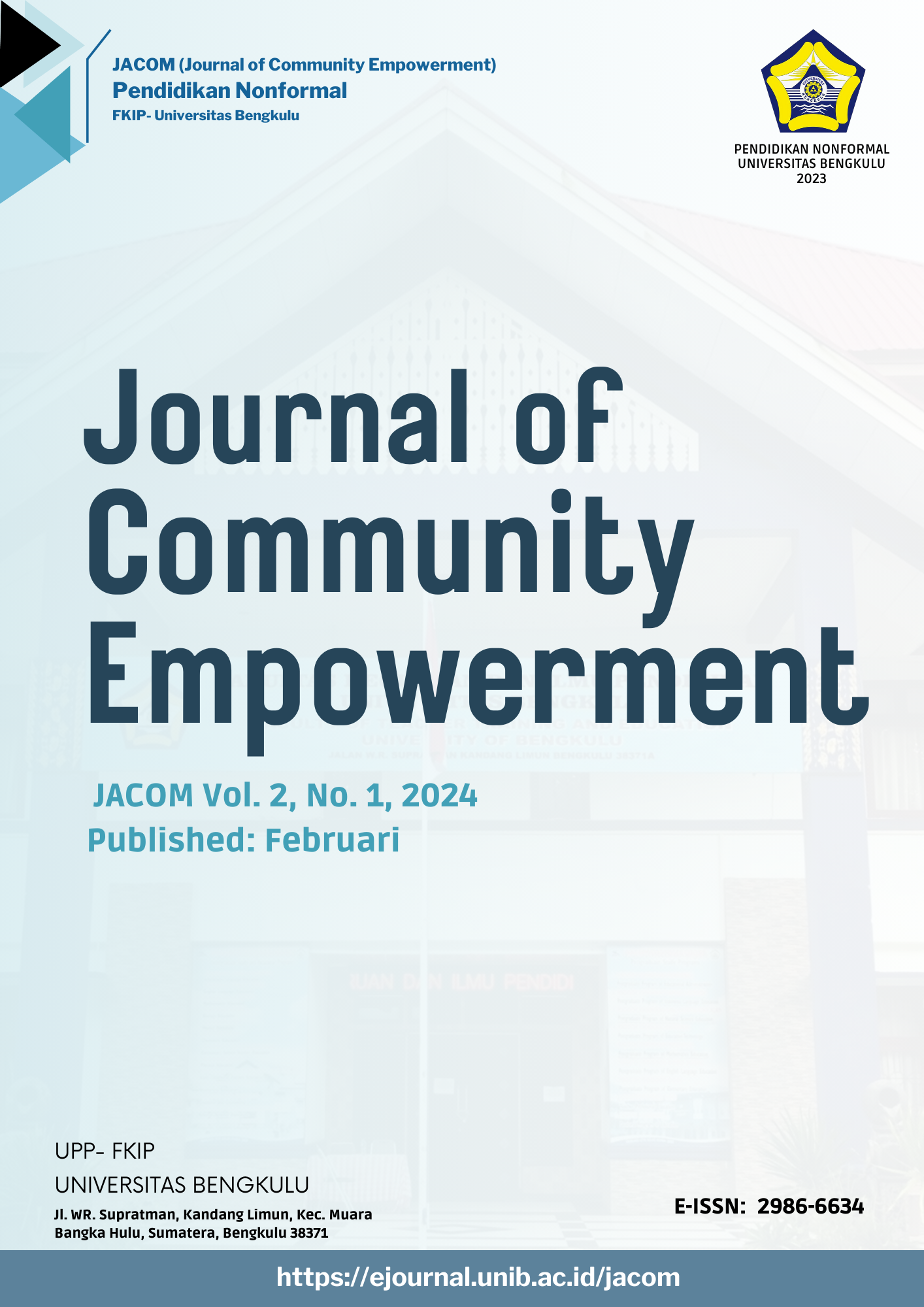Main Article Content
Abstract
The purpose of this study is to describe the types of Parenting programs at Mahira Nature School Early Childhood Education (PAUD) in Bengkulu City. This research is qualitative with a descriptive approach. The researchers chose a descriptive qualitative approach because they were directly involved in the field, collecting relevant data in line with the focus of the study at Mahira Nature School Early Childhood Education (PAUD) in Bengkulu City. Data collection techniques included interviews, observations, and documentation. The results indicate that the Parenting program has been implemented, specifically through Training Activities aimed at providing parents with knowledge and skills to educate their children effectively. The training covers various important aspects of child development and parenting practices. Parents are given an understanding of child development stages, effective communication techniques with children, such as giving full attention when a child speaks, adjusting language according to the child's abilities, and using hand gestures, facial expressions, or visual aids to support communication. Family gathering activities aim to build togetherness and cooperation between parents and children, enhance communication between parents and teachers, as well as among parents themselves, create a supportive and harmonious environment for children's development, and provide enjoyable learning experiences outside the classroom. Concert activities aim to increase voluntary participation, such as involving parents in concert preparations like making decorations and costumes, fostering collaboration, providing a platform for children to showcase their talents and creativity, and promoting solidarity among people. The study identifies three types of Parenting programs at PAUD: Type 1 Parenting Education, Type 2 Communication, and Type 3 Volunteering.
Keywords
Article Details
Copyright @2022. This is an open-access article distributed under Journal of Community Empowerment

